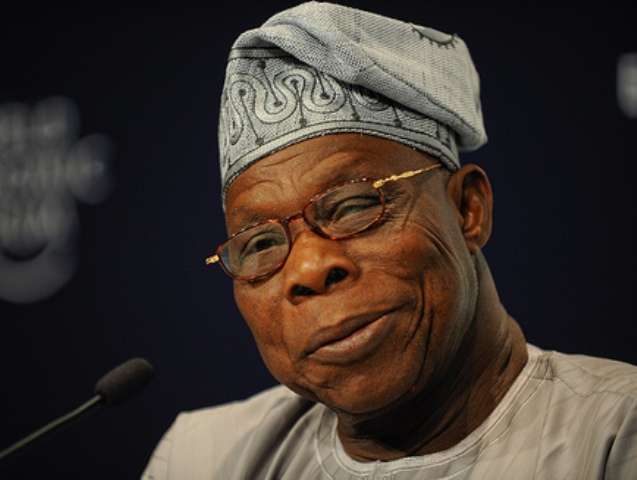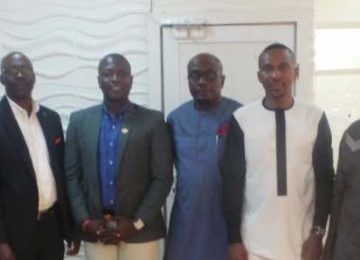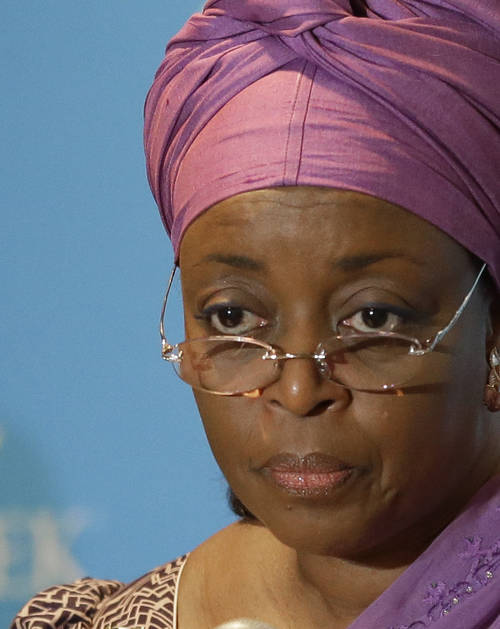Former president Olusegun Obasanjo on Saturday in Ibadan said that the effect of corruption in Nigeria was being shouldered by the youths who he described as vulnerable and defenceless.
Obasanjo said this during the 2017 annual public lecture of the Dorcas Oke Hope Alive Initiative (DOHAL). Dorcas is the late daughter of the founder of the Sword of the Spirit Ministries, Bishop Wale Oke. She died in 2011.
While delivering this year’s lecture titled, ‘Corruption and the challenge of the African child’, Obasanjo noted that Dorcas death was a direct result of corruption in Nigeria’s health sector. According to him, the youths in Nigeria now believe that the easiest way to get rich is to get government job.
He said, “The evil of men in authority has made living in the world very challenging for all but particularly for young people. Young people are the worst victims of social ills such as corruption and bad leadership which seem to characterise our world today.
“A former American president once said that when older men declare war, it is the youth that must fight and die. The youth substantially bear the brunt of the misconduct and misbehaviour of the elders. They pay for the sins they do not commit. While I am not saying that older men commit all the evil deeds of the world, it is important to stress that young people, because of their vulnerability and dependence on the decisions of older people, are always the majority to bear the brunt of bad leadership, bad decisions, bad families, bad society, bad politics, policies and governance.
“The young Dorcas Oke, bore the brunt of the bad leadership of our society. She was full of life and aspiration but they were cut short by deliberate actions or inaction of the people in health system, that is riddled with corruption. She died because some corrupt persons in the sector succeeded in selling adulterated drugs which killed her. Someone whose job it was to monitor and maintain standard, failed to stop the adulterated drugs from entering our markets. The story of Dorcas is just one among many others that buttress the claim the corruption kills.
“In Nigeria today, there is high perception among the young people that getting a government job is a guaranteed way of making easy money. Our youths are aware of the corruption that is prevalent in public and private sector. Sadly, many youths looks forward to it as their turn to eat because they have no better alternative.”
The former president said that the problems of Africa were inflicted by the leaders because of their choice. According to him, Boko Haram founders were triggered to start the sect because of what they perceived as corrupt practices of the Western educated ruling elite who deprive the people of basic needs of life.
“From my theses and research into insecurity in the North-East of Nigeria, what I found was most alarming. One of the reasons given by Boko Haram at their inception is that when they saw how corrupt their Western educated leaders were, they said if those who occupy government offices by virtue of their Western education could corruptly enrich themselves and deprive others of basic things of life, then that education is haram, which means forbidden.
“I was told that when the group gathered under the late leader of the group, Mohammed Yusuf, they first tore their certificates because they feared that a certificate that could not fetch them a source of livelihood is useless to them. Similarly, they saw Western education as corrupting individuals,” noted Obasanjo.
“We may not agree with their position but it is the disillusion of the citizens over the inadequacy or poor performance of their leaders. Therefore, there is a direct correlation between corruption and youth healthy development,” he added.
The former president said that corruption could only be fought successfully if the law enforcement and justice departments were made to complement each other, saying that the anti corruption agencies like the Economic and Financial Crimes Commission and Independent Corrupt Practices and Other Related Offences Commission had been politicised.
He said, “To fight corruption, we must strengthen our law enforcement and justice system and encourage them to complement each other in the fight against corruption. When I was elected president in 1999, my administration took the issue of corruption very seriously and we established anti corruption agencies like the EFCC and ICPC.
“They were provided with political support needed to fight corruption and they did their best. But after we left office, they became politicised and weakened to a level that they were unable to provide their services. In fact, one of the governors who was jailed for corruption, was supposed to find replacement for EFCC boss then Nuhu Ribadu. You know the type of replacement he would bring.
“We must strengthen these institutions especially in carrying out prosecution but government alone cannot fight corruption. It is very disheartening when the law enforcement agency carefully investigates a case and the culprit finds his way around the judiciary to escape. Corrupt people and accomplices must be punished. We cannot afford to have sacred cows in the fight against corruption.”




